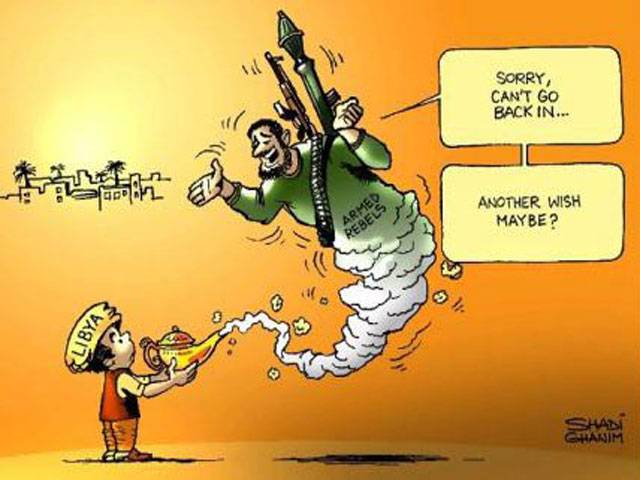Local militiamen expelled fighters loyal to Libya’s National Transitional Council from the town of Bani Walid this week. A stronghold of the Warfalla tribe, Bani Walid was a final bastion of Gaddafi forces, and some news reports blamed the new fighting on “Gaddafi loyalists”. The reality is much worse.
Hope of a smooth transition to national unity is vanishing as Libya’s interim government fails to control tribal, regional and class rivalries that have bubbled up across the country. Many of these old conflicts take the form of vindictiveness against those who supported the dictator - as indeed many did, in a way.
The months of civil war before Gaddafi’s death proved that despite the brutality and corruption of his regime, substantial forces were willing to fight for him, or at least by his side. This was, for the most part, because of regional and tribal loyalties, not for love of the dictator. The new Bani Walid fighting is a good example of this: the outbreak was rooted in tribal rivalries that long predated Gaddafi.
Another warning sign became visible when some of the militias that had worked together (up to a point) against Gaddafi retained their weapons, claiming a new role as “guardians of the revolution”. That was bad news for the NTC, and for hopes of a unified country. A government without a monopoly on force is not really a government at all.
Indeed, some of the once-allied anti-Gaddafi militias are now skirmishing with each other - the clearest evidence yet that the growing chaos has little or nothing to do with a resurgence of the regime.
This week Doctors Without Borders withdrew its workers from the city of Misurata, saying its doctors had had to treat some 115 prisoners for injuries inflicted by torture, often at the hands of militias and for reasons not directly tied to the war. Amnesty International, citing more torture elsewhere, does not accuse the NTC but says the interim government is failing to prevent the abuses.
The best-case scenario, then, is that the Council is impotent. After the new elections law was passed on Saturday despite withering criticism, other Libyans will say that interim leaders are trying to cement their power.
Libya has significant assets, notably the oil and gas revenue that is flowing in once again. But even money will not soothe old anger; only political vision and inspired leadership has any chance to do that now.
–The National editorial
Thursday, April 18, 2024
A leadership crisis as Libya falls apart

PPP, PML-N parliamentary delegation in Beijing to boost ties
April 18, 2024
Eight more Sindh ministers sworn in
April 18, 2024
AGP’s audit report discloses irregularities in BRT project
April 18, 2024
National Assembly session tomorrow
April 18, 2024
EC announces election schedule for PP-269
April 18, 2024
Hepatitis Challenge
April 18, 2024
IMF Predictions
April 18, 2024
Wheat War
April 18, 2024
Rail Revival
April 17, 2024
Addressing Climate Change
April 17, 2024
Justice denied
April 18, 2024
AI dilemmas unveiled
April 18, 2024
Tax tangle
April 18, 2024
Workforce inequality
April 17, 2024
New partnerships
April 17, 2024
ePaper - Nawaiwaqt
Advertisement
Nawaiwaqt Group | Copyright © 2024





